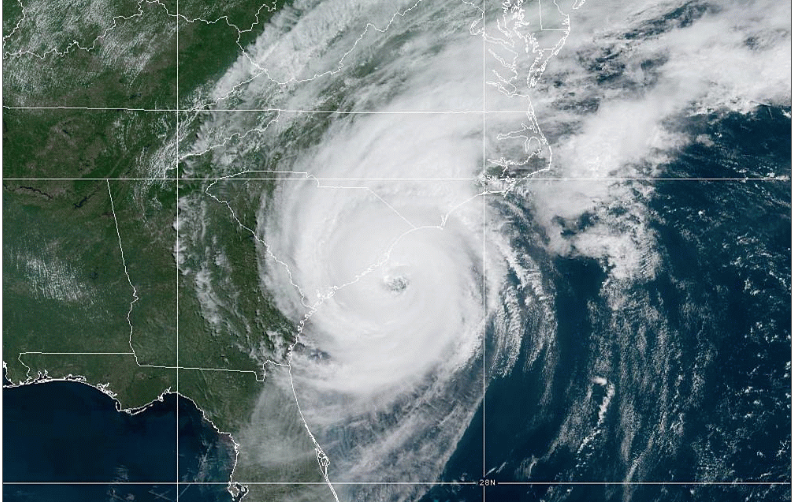The death toll in the Bahamas rose to 23 as the eye of Hurricane Dorian moved off of South Carolina's Cape Romain, near Myrtle Beach. At 2 p.m. Eastern time on Thursday, Sept. 5, the storm was headed NNE with sustained winds of about 110 miles per hour, according to NOAA.
The hurricane was expected to bring an intense storm surge with heavy rainfall, high winds and tornadoes to the Carolinas before moving up the coast to lash the Northeast with bands of rain throughout the weekend.
Dorian's hit comes almost exactly one year after Hurricane Florence came ashore near Wilmington, N.C., close to the South Carolina border.
On Thursday, the storm had knocked out power for about 250,000 customers in South Carolina, and about 360,000 residents of the state had evacuated. North Carolina Gov. Roy Cooper declared a State of Emergency for all 100 counties in his state. Fishermen throughout the Carolinas were busy removing gear from the water as Dorian beat down on the Bahamas over the weekend.
Fishermen and their families have a tendency to stay close to their boats and equipment and ride out hurricanes, often forming small communities of storm riders collectively tuned into channel 16 and being the first boots on the ground to begin recovery.
“We’re still battening down the hatches,” South Carolina Gov. Henry McMaster McMaster told the New York Times. “When the wind stops, we still have to deal with the water, because the water’s going to last longer.”
Forecasters said the storm surge could flood up to 8 feet. The entire Southeast coast from Georgia to North Carolina could get up to 15 inches of rain.
The stormwater surge threatens to flood critical habitat with runoff from hog farms or even a surplus of fresh water that could upset the delicate balance required in the region's estuaries.
In 2018, Florence wiped out infrastructure for some fishermen, which hampered an otherwise strong blue crab season.
“Some crabbers lost everything, and several packing operations were completely destroyed. It’s been a very tough year for the industry in general,” said Glenn Skinner, executive director of the North Carolina Fisheries Association.







